I've run into quite a novel problem with ui router. I'm basically trying to query my API for a template url, which is stored and returned as a Resource object. The problem, is it seems that the templateUrl function is returning as undefined. My code is as follows:
(function() {
'use strict';
angular.module('myApp')
.config(function ($stateProvider, PageProvider, $httpProvider) {
$stateProvider
.state('core', {
abstract: true,
templateUrl: 'app/core/core.index.html',
controller: 'CoreController',
controllerAs: 'vm'
})
/* Parent page view */
.state('core.page', {
url: '/:slug',
views: {
'page_content@core': {
templateUrl: function(params) {
var slug = params.slug;
// only need to load core template
var url = 'assets/templates/' + slug + '.html';
return url;
},
controller: 'PageController',
controllerAs: 'vm'
}
}
})
.state('core.page.child', {
url: '/:child',
views: {
'page_content@core': {
templateUrl: function($stateParams) {
PageProvider
.$get() // $get() returns Page service
.findOne($stateParams.child)
.$promise
.then(function(data){
return data.template.url;
});
}
}
}
});
});
})();
I set a breakpoint for my state, 'core.page.child', to see what variables were available in the scope, and I found something quite strange:


I really don't understand why this is happening, since .then(cb) is only called AFTER the promise is resolved, which means it should return the correct value as expected - but it doesn't.
Any help would be much appreciated.
Edit: I should add that what is happening is that ui-router is simply not loading my template at all - I get an empty ui-view. I had initially thought it might be a problem with my $stateProvider configuration, but that doesn't seem to be the case.
Edit2: I dug a little into the source code based on the call stack. It seems that both of you are correct - ui-router does NOT work with promises.
/**
* @ngdoc function
* @name ui.router.util.$templateFactory#fromConfig
* @methodOf ui.router.util.$templateFactory
*
* @description
* Creates a template from a configuration object.
*
* @param {object} config Configuration object for which to load a template.
* The following properties are search in the specified order, and the first one
* that is defined is used to create the template:
*
* @param {string|object} config.template html string template or function to
* load via {@link ui.router.util.$templateFactory#fromString fromString}.
* @param {string|object} config.templateUrl url to load or a function returning
* the url to load via {@link ui.router.util.$templateFactory#fromUrl fromUrl}.
* @param {Function} config.templateProvider function to invoke via
* {@link ui.router.util.$templateFactory#fromProvider fromProvider}.
* @param {object} params Parameters to pass to the template function.
* @param {object} locals Locals to pass to `invoke` if the template is loaded
* via a `templateProvider`. Defaults to `{ params: params }`.
*
* @return {string|object} The template html as a string, or a promise for
* that string,or `null` if no template is configured.
*/
this.fromConfig = function (config, params, locals) {
return (
isDefined(config.template) ? this.fromString(config.template, params) :
isDefined(config.templateUrl) ? this.fromUrl(config.templateUrl, params) :
isDefined(config.templateProvider) ? this.fromProvider(config.templateProvider, params, locals) :
null
);
};
It seems that I'll either have to use $stateProvider.decorator, or hack ui-router's core. I think I might just do the latter and submit a PR. I'll be posting this issue on the github repo as well, to see if anyone on the ui-router team has a solution for this problem.